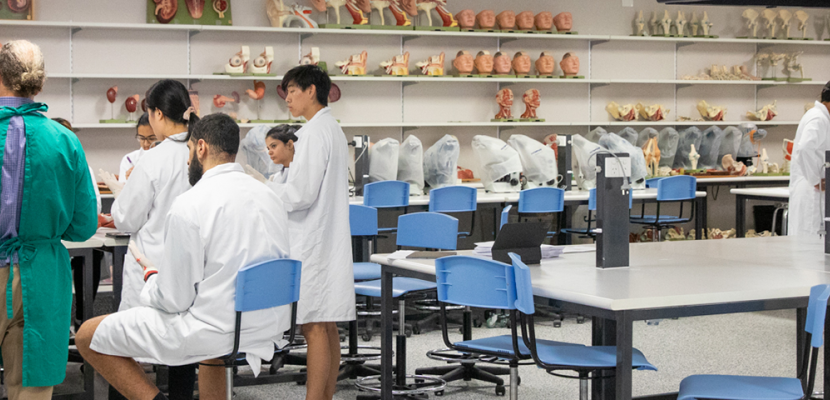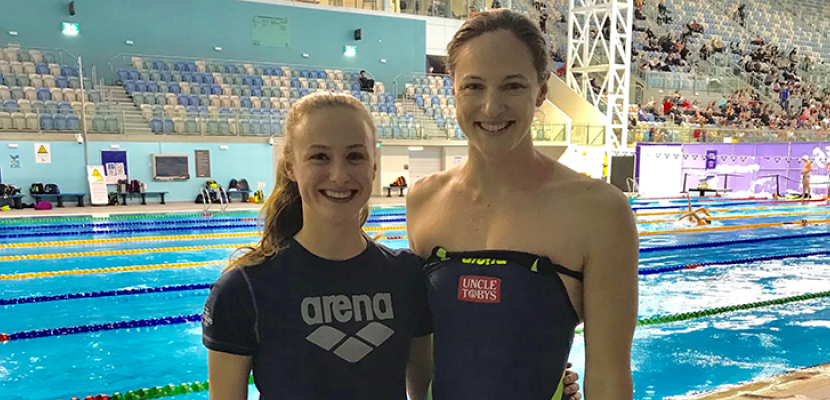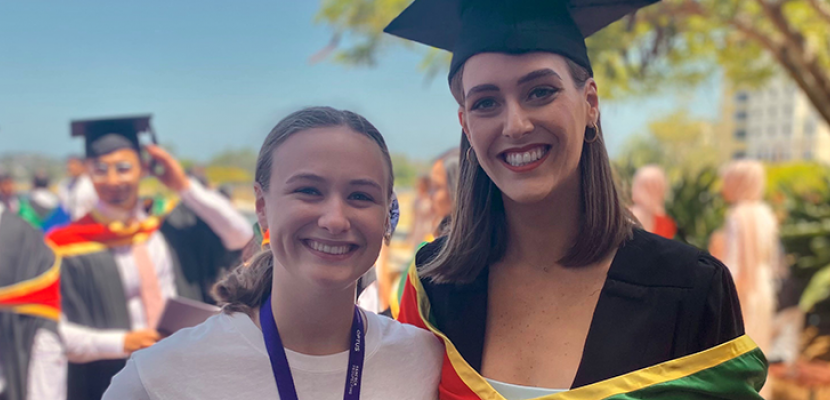
Written by Medical Program student Maddy Condren
“In an exciting innovation, Bond University will be offering a September admission point into our Medical Program… As a result we are pleased to offer you a position in the September 2020 intake of the Bond Medical Program.”My breath caught and my heart stopped. “Mum!” I yelled, “I did it! I’m going to be a doctor!”
Let’s rewind 15 years. I’m five years old and flicking through my favourite book, A Colour Atlas of Human Anatomy. I remember staring wide-eyed at the cadaveric images, captivated by what ‘insides’ looked like. Growing up I spent a little bit of time at my mum’s work, the Queensland Children’s Hospital, where she works as a paediatric oncologist.
I would walk through the brightly-muralled corridors, curious about the beeping machines and names of departments on doors. Most importantly, I can recall the awe I felt reading the cards she would receive from families she’d helped. My mum was a superhero, in no uncertain terms, and thus the seed was planted.
When I entered high school, I knew I wanted to become a doctor. Nothing could describe the sheer awesomeness of realising that one day I could save a person’s life. So, I had the ambition – now I just needed to find a way to get there. My journey was side-tracked by a plethora of social activities: sport (most importantly, swimming and rowing), as well as dance, music, speech and drama, and pretty much anything that would keep me occupied outside of school hours.
With all of these extracurriculars demanding my time, my studies took less of a priority, and I unknowingly constructed this façade that I wasn’t built for academics. I was an athlete made for the pool or the track, not sitting behind a desk.

This took the greatest toll on me in my final years of high school where, as hard as I tried, I couldn’t get the grades I needed to secure direct entry into Medicine. So, I graduated with average marks and began studying Biomedical Science at a university in Brisbane, my hometown. My first year of uni was so-so, and that’s when I realised I had to start making sacrifices to achieve what I really wanted. I knew that if I aced my Biomedical Science degree, there would be a chance to transfer into Medicine.
The hardest thing I had to do to focus on my goals was quit swimming. I began swimming when I was six years old, and when I stopped at 18, I had achieved state and Australian school records, made finals at National competitions, and swum against legends like Cate Campbell. Swimming was the one thing that made me feel successful, yet I gave it up for this seemingly impossible dream.
So, with swimming in my rear-view mirror, my difficult journey to studying Medicine began – waking up at 6am to study before class and staying awake until 10pm with my nose glued to my notes, thinking ‘just one more page’. I had so many what-ifs: ‘what if I just went over this one more time’, ‘what if it’s not good enough’... the list went on. My grades rose, but not without the sacrifice of so many weekend plans, family dinners, and friendships.
At the end of my second year in Biomedical Science, I caught up with an old school friend who was about to graduate from the Bond Medical Program. Over coffee she reminded me that as long as I hadn’t graduated from my bachelor’s degree, I was eligible to apply for undergraduate entry to the program. “You could be a doctor before you’re 25,” she said. This was my chance, I thought.

Fast forward to March of 2020, the year to end all years, and I received an email confirming my entry into the program. All the struggles, the late nights and early mornings, the coffee-fuelled days and silent tears from years of disappointment had all just paid off with one email. I did it.
Now, a year into the Medical Program, I feel more at home than I’ve ever been at any institution. The program’s curriculum is balanced and not overwhelmingly exhausting, and I know that Bond’s philosophy is not just to create intelligent doctors, but to create good doctors. From the second week of first year, you begin learning consultation and clinical skills, and the curriculum is focused on teaching students a holistic approach to practising medicine, not just learning every disease and every drug (although we do have to learn that too!).
I didn’t expect that medical school would be easy – and there have been challenges, of course. Being part of the first September cohort, I found that there were some myths associated with my starting semester. But really, the only difference between someone starting in May and September is the date you graduate. We will still have the same experiences and the same opportunities to secure internships once we graduate, and will emerge from the Medical Program as qualified, compassionate and workforce-ready doctors.
Everyone’s journey to Medicine is different, but I can wholeheartedly say that everyone who qualifies has done so with sacrifice, determination and grit.
Study Medicine at Bond
Discover Bond’s Medical Program, the shortest pathway to becoming a doctor in Australia.